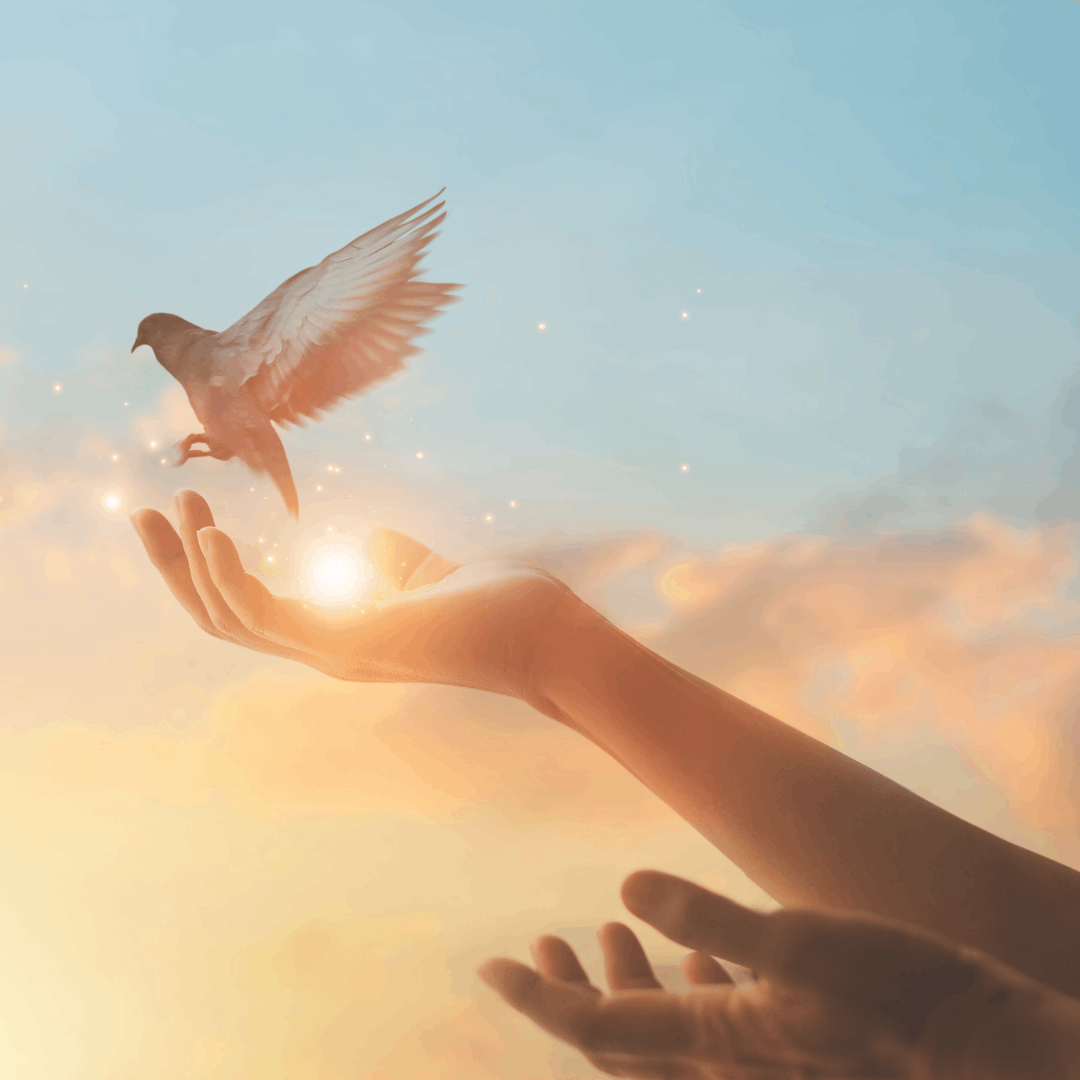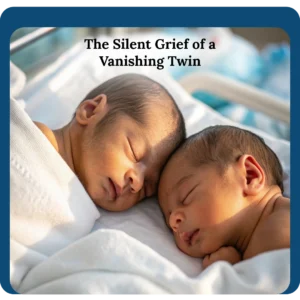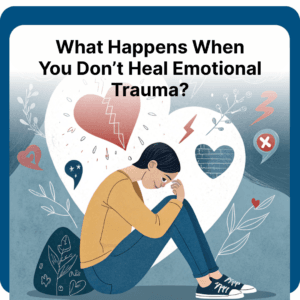Being Hopeless is to be Irresponsible
Have you ever felt hopeless about a situation, person, or anything else in your life? How does it feel? It is as if something has pulled out an energy plug from the body. You feel no power, no energy, no current running through your veins. Everything seems like a massive effort, including getting off the bed. You can’t see the way, you feel blank and lost. You feel covered in dark grey smog, suffocating you. This and so much more happens when we choose to feel hopeless. Yes, I mean, we choose to be hopeless. It is one of the strongest coping mechanisms we create in order not to be responsible for ourselves. Can we change that by changing our thoughts? Yes.
Let us look at the energy of hopelessness and the reasons we indulge in it. Being hopeless is a distraction we create in order to not take a supposedly tough or wrong decision. We always have choices but the moment we get into judging the choices based on right and wrong, it creates confusion and density. We try not to make wrong choices out of the fear of losing something or getting judged by others. We also do not want to be held accountable for making the wrong choices. So we create a cocoon of helplessness to hide under.
A lady was struggling to take care of her ailing mother. While managing her job, marriage, in-laws, children, she also had to attend to her mother. She felt exhausted and drained fighting on all fronts. Was there a solution in her mind? Not really. She couldn’t imagine leaving her job which was to pay for her loans; she couldn’t imagine leaving her marriage and children for the fear of losing support and social status; she couldn’t imagine leaving her mother behind in the care of others. None of these options worked for her and she sold herself the story that she doesn’t have a choice. She felt more and more hopeless by the passing day, which began to reflect on her body in the form of pains and aches. Did she truly not have a choice? No. She did have choices. However, none of the choices were ‘right’ according to her. If she took any of those choices, she would be labelled as a bad daughter, bad mother, or bad worker. The fear of being judged this way had her creating the fog of hopelessness so no one can see her and judge her. This is how she was coping with her situation. It worked for her temporarily till one day she collapsed from exertion.
There are always more choices available for us than we can see at the moment. We convince ourselves to think that we only have limited choices. Remember, our mind is limited to what it experiences, studies, and absorbs from the environment. However, the subconscious mind is 6000 times stronger than our conscious mind. It can present information and knowledge that the conscious mind cannot comprehend at the time. All we have to do is ask questions around the situation: what more choices are available for me here that I am unable to perceive at the moment? The body starts to pick the awareness and guides to the solution in the most surprising manner. In her case, it could have been a medical worker she could have employed to take care of her mother or that her mother shifted with her to her house or the family and job shifted to where her mother was. Once she asked questions with an open mind, numerous possibilities would have shown up. But in this case, she concluded that there were only three choices and that those choices were wrong. She stopped there instead of exploring more options. While being responsible towards everyone and everything, she became irresponsible towards herself. Ultimately, it didn’t work. It took her to take a downfall to get this.
Being responsible for self creates the opportunity for more choices to show up. If the choices are not right for you, you haven’t looked enough. Ask a question and let the awareness guide you to what contributes to your life the most. Keep going.
So where in life are you stopping yourself to look for more choices and more possibilities by selling yourself the story that you are hopeless? This coping mechanism might have worked in the past temporarily. Does it work now? If not, then what can you choose now to change your situation where you feel stuck?
–
Natasha Arora
Clinical Psychologist and Research Executive at Treta Foundation.
Hopelessness is when you feel there’s no chance things will get better, and that nothing you do will help.
No. It’s a human response to difficult situations. Recognizing it is actually a strength.
Start with small actions—one kind step for yourself, reaching out to someone, or doing something you enjoy.
Yes, often. Social media or others’ highlight reels can make your own struggles feel heavier.
Yes. Focusing on small things you are grateful for shifts your mind from what’s missing to what’s still there.
There’s no fixed timeline. Sometimes a single moment can feel better; sometimes it takes consistent work over weeks or months.
If hopelessness affects your sleep, work, relationships, or you think of harming yourself—definitely talk to a therapist or counselor.
Practices like journaling, gratitude, gentle exercise, being in nature, and staying connected to kind people help.
Yes. Mindfulness helps you stay in the present moment instead of spiraling into what might or might not happen.
Try believing that feelings aren’t facts — they come and go. Remind yourself that “this too shall pass.”




This post really resonated with me! It’s so easy to fall into hopeless ness when things feel overwhelming, but I love the idea that hope is actually a choice—and a responsibility. It’s empowering to think that we can actively shift our mindset instead of waiting for things to change on their own.
I love how this post redefines hopeless ness as something we can actively fight against rather than just endure. It’s easy to feel stuck, but realizing that hope is a responsibility puts the power back in our hands. Thank you for this refreshing perspective!
This post really spoke to me! I’ve had moments of feeling completely hopeless, but looking back, I see that it was when I stopped taking responsibility for my emotions and actions. Reframing hope as something we cultivate rather than something that just happens to us is such a game-changer.
I never thought about being hopeless as a form of irresponsibility, but it makes so much sense! When we stop believing in possibilities, we also stop taking action—and that in itself is a choice. Thank you for this powerful reminder that hope isn’t just an emotion, it’s a responsibility we owe ourselves.
This article on hopelessness really made me think! It’s so true that when we give in to despair, we also give up control over our own growth. I love the perspective that choosing hope is an act of responsibility—it shifts the narrative from feeling powerless to actively creating change
This perspective on being hopeless is to be irresponsible really struck a chord with me. It’s so true that when we allow hopelessness to take over, we also give up our power to change our circumstances. Your insights on taking responsibility for our emotions and actions are a much-needed reminder that hope is something we can actively cultivate. Such a thought-provoking read—thank you for sharing this!
This article on being hopeless is to be irresponsible really made me reflect on how our mindset shapes our actions. I love the perspective that hopelessness isn’t just a feeling—it’s a choice that can impact our ability to take charge of our lives.
This post really hit home for me. It’s so easy to feel stuck in difficult times, but I love how you emphasize that being hopeless is actually a choice—and one we can overcome. Emotional resilience isn’t about ignoring struggles but taking responsibility for how we respond to them. Thanks for this perspective
This was such a soul-shaking read. I never realized how easily I let hopelessness take the wheel when things get tough. Your words reminded me that emotional resilience is a conscious practice — one that begins with accountability. Truly grateful for this insight.
I love how you connected responsibility to emotional states — it’s not something we often talk about. Developing emotional resilience has been a big part of my healing journey, and this blog put into words what I’ve been feeling for a while. Beautifully written and deeply reflective.
Wow, this article really hit home for me. I’ve been struggling to make sense of some emotional lows lately, and your perspective helped me reframe hopelessness entirely. It’s so true that emotional resilience isn’t just about bouncing back — it’s about owning our inner world with courage. Thank you for this powerful reminder
Being hopeless can become a habit if we’re not careful. This post was a wake-up call to choose courage over comfort. Brilliant writing!
This resonated deeply. Being hopeless has often felt justified, but now I see how it can silently rob us of our personal power. Thank you for this insight.
Such powerful writing! Being hopeless isn’t just sadness—it’s a subtle way we disconnect from life. This gave me a lot to think about.
Being hopeless has always felt like an emotional weight, but I never realized how it also impacts our accountability. Loved this reflection.
This article truly resonated with me. I’ve often found myself trapped in a cycle of hopelessness, convincing myself that there are no viable options. Reading this made me realize that I might be using hopelessness as an excuse to avoid making tough choices. Thank you for shedding light on this perspective.
This blog beautifully explains how being hopeless can sometimes be a way to escape responsibility. Much needed perspective in today’s stressful times.
I’ve never looked at being hopeless as a form of irresponsibility. This really shifted something inside me—thank you for putting it so clearly
This post made me reflect deeply on how being hopeless can become a habit if we don’t take conscious action. Very powerful message!
I really liked how you connected being hopeless with personal responsibility. This is such an honest and needed reminder for self-growth.
Being hopeless is something many struggle with, and this post explains why it’s important to break that cycle. Very motivating read!
Such a deep and thought-provoking take on being hopeless. I never looked at it as an act of self-abandonment before reading this.
This article beautifully explains how being hopeless isn’t a dead end but a sign to take charge of life. Truly inspiring!
Thank you for this insightful post. I always associated being hopeless with weakness, but you’ve shown it’s more about avoiding responsibility. Eye-opener!
I never thought that being hopeless could actually mean being irresponsible towards my own life. This blog gave me a fresh perspective!
The honesty in this piece is powerful. Hopelessness is something many of us carry silently, and your words offer a path out—with courage and self-awareness.
What a refreshing perspective! I’ve been stuck in a cycle of feeling hopeless, but this reminded me that staying there is a choice. Grateful for this wake-up call.
This post made me sit up. I never thought being hopeless could actually be seen as a form of irresponsibility. Eye-opening and motivating to take back control.
Reading this challenged me in the best way. I’ve often used the word ‘hopeless’ without realizing how much personal power I was giving away. Thank you for reframing it so wisely.
This was such a thoughtful breakdown of Social Media! It’s easy to get caught in the scroll without realizing its mental impact. Really appreciated the balanced take — both the good and the bad sides matter. Thank you for this insight!
I’ve often felt like giving up when overwhelmed, but calling hopelessness ‘irresponsible’ reframed it entirely. It pushed me to stay curious and keep seeking choices—what a powerful shift!
This perspective changed how I view my emotional blocks—hopelessness really is a self‑set limitation. Your words encourage me to dig deeper for unseen possibilities. Turning hopeless into hope‑ful sounds right!
As someone who’s felt utterly hopeless during life’s hardest moments, your insight that it’s actually a responsibility to choose hope hit me hard. I’ll be asking myself, ‘What other paths am I missing?’ from now on.
Reading this, I realized how often I’ve used hopelessness as a shield instead of seeing it as a signal for action. Reframing ‘hopeless’ as a call to explore options is incredibly empowering. Thank you!
I was deeply moved by the insight that being hopeless can feel like an abdication of personal power. Your perspective reframes hopelessness as a form of emotional irresponsibility—not in an accusatory way, but as a wake‑up call to reclaim agency. It resonated because it empowers us to see hope not as naive optimism, but as a choice rooted in responsibility. Thank you for this wise and compassionate reminder.
Thank you, Sonali. The insight that being hopeless might actually be irresponsible toward ourselves resonates deeply. It reminds me that hope isn’t passive—it’s a responsibility we owe to our own vitality. This is the nudge I needed to question the fog and reclaim clarity.
Loved this post—such a fresh take on hopelessness as a disguised coping mechanism. It’s as if we cocoon ourselves in ‘no-choice’ to avoid hard decisions, yet that very response is irresponsible to our own potential. This steers me to pause and ask: ‘What other options am I shutting out today?
This really hit me. I’ve often equated hopelessness with surrender, but framing being hopeless as an act of avoidance shifted something inside me. It’s powerful to realize that when we label ourselves as hopeless, we may actually be stepping away from our own responsibility for growth. Thank you for this eye-opening perspective!
Wow, “Being Hopeless Is to Be Irresponsible” feels like a gentle yet firm nudge that hope isn’t just a feeling—it’s a responsibility we owe to ourselves. I’ve often let hopelessness paralyze me, especially during emotionally heavy days. Reading this, I’ve decided to lean into small routines—like mindfulness or reaching out to loved ones—so I don’t let hopelessness win. It’s unexpectedly empowering to consider optimism not just as a mood, but as mindful action. A big thank you, this really resonated.
I came across this article during a rough time and this message—Being Hopeless is to Be Irresponsible—actually flipped something in me. Realizing that giving in to hopelessness felt like abandoning my own potential was a powerful call to action. Since then, I’ve started small: simply naming my feelings, reaching out to a friend, or even journaling one hopeful moment each day. It’s not about ignoring reality but nurturing the belief that hope itself is a choice—even when it feels hardest to make. Thank you for lighting that spark.
Wow — being hopeless is to be irresponsible made me pause. I’ve often used hopelessness as a shield, but now I see it’s also a way of avoiding self-accountability. Thank you for this insight
Such a wise article. The idea that being hopeless is to be irresponsible challenges the myth that we’re powerless — it’s a wake-up call to reclaim our agency.
Such a wise article. The idea that being hopeless is to be irresponsible challenges the myth that we’re powerless — it’s a wake-up call to reclaim our agency.
I loved how you explained that being hopeless is to be irresponsible toward our own potential. This was a much-needed reminder to look for more choices, even when things feel stuck
Thank you for this post — reframing being hopeless is to be irresponsible really struck a chord with me. It’s empowering to see hopelessness not as weakness, but as a call to take responsibility.
I’ve heard about Access Bars before but didn’t really understand it. After reading this, it feels more relatable and less complicated. Thank you for sharing this.
This was such an eye-opener for me. I’ve been feeling drained for months and didn’t understand why. The way you explained Access Bars Therapy made it feel very safe and natural.
Honestly, the sentence Being hopeless is to be irresponsible stayed with me long after reading. It’s a wake‑up call in the best way